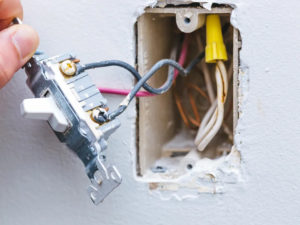An Overview
Indiana’s property taxes are very reasonable when compared to property taxes elsewhere, but they can be very confusing. There are different tax rates applied according to property type and how those properties are used. Within the same county, municipalities charge different rates for properties of the same category as other municipalities. That is even though the state tried to simplify the taxes in 2008 by placing a 1%, 2%, and 3% cap on each of the categories of property. In general, most owner-occupied (homestead) residential property falls into the 1% category. Non-owner-occupied residential property and agricultural land fall into the 2% category, and all other real property falls into the 3% category.
Clarification of Tax Caps
The statement about the 1%, 2%, and 3% categories is a little oversimplified. These percentages are state caps and not the actual rates charged by the municipalities. The state caps can be modified by municipalities if the voters decide to raise them. For example, many localities around the Indianapolis area have increased those caps to cover various school initiatives. In 2022, the average tax rate on residential property was 1.08% of the gross assessed value in Hamilton County. In Boone County, the average tax rate was 1.02%. In Hendricks County, 1.11% was the average reported tax rate. And in Marion County, the average tax rate was 1.15%.
These average county property tax rates are a reflection of the variation across all municipalities within the county. For example, in Hamilton County, the residential rate in Carmel, Indiana for 2022 is .91%, whereas Westfield is 1.03%.
How Do Caps Work?
As a general rule, properties are assessed each year by the county to determine their current values. Independent of that, local governments are working on budgets to operate each year. Tax rates are calculated by the local governments based on the proposed budget and the assessed value of the taxable property, along with their categories within their jurisdiction. The tax caps, in theory, work to keep the government in check by limiting its ability to tax property at ever-increasing rates relative to value. If a tax rate is applied to a piece of property and the resulting tax bill is above the cap percentage applied to the gross assessed value of the property, then a credit is due to the owner. If enough credits are due, then budget adjustments are required.
Tax Cap Ramifications
Not all communities benefited equally from property tax caps. Some communities have a large number of commercial properties that contribute to their coffers at a higher tax rate than others. Other communities may have a lot of low-value properties, so when a homestead is filed or a senior citizen discount is filed, there are not many, if any, property taxes collected. So some local municipalities suffered greatly from the lack of revenue, while others did not. In the example above, Carmel homeowners are on average paying less than the 1% cap, so Carmel has room to grow its budget.
What Can You Expect to Pay?
A high percentage of properties in Brownsburg, Carmel, Fishers, Indianapolis, Noblesville, Westfield, and Zionsville are considered residential properties. When the homestead deduction is filed, the cap ensures the property tax for these properties is roughly 1% of the gross assessed value or lower unless the property is accompanied by excess acreage. So using 1% of the gross assessed value on the owner-occupied property would give you a pretty good estimate of what you’ll owe. Excess acreage can raise your rate, as that acreage is going to be capped at either 2% if it is deemed farmland or 3% if it is other, such as excess acreage in a neighborhood. We have heard some stories of communities removing the farmland designation on the excess property and converting it to other property when it is obvious that the land is no longer used for farming.
Buyers Usually See Higher Taxes
With property values increasing over the past several years, buyers can usually expect the property taxes to rise after purchasing a property. The purchase price will have a strong influence on the assessed value. In many cases, you can expect your taxes to cap out in most areas for residential owner-occupied property, and the assessed value will likely drift toward the purchase price unless you buy a significantly undervalued house. If that is the case, the assessed value may exceed what you paid for it if the assessor is doing his job. Most people pay market value for their homes. Historically, the assessed values have been lower than market values, presumably in part for political reasons.
Where Things Get Perplexing
Property taxes in Indiana are paid in arrears, meaning you owe money even though it may not yet be billed. Arrears mean these taxes are paid the following year. So the taxes you pay in 2022, for example, are actually the taxes for 2021 payable in 2022. In 2022, the accrued taxes are not due until 2023. Property taxes are paid in two installments, so the taxes are broken up into two equal parts, known as “semi-tax.” The first installment is due on May 10 of each year, and the second installment is due on November 10th of each year. Those dates may vary slightly. But even on November 10th, after paying your payment, you still owe about 11 months of taxes.
Seller Owed Taxes
Indiana real estate contracts typically call out the Seller paying prorated taxes up until the date of closing. This includes any unpaid taxes for the previous years and adjusted taxes for the current year. Even though those property taxes are not yet due, they are owed by the Seller. Because property taxes “run with the land”, failure to collect from the seller, would place the burden of payment on the buyer. This can be confusing because many people believe that when they pay their property taxes on the due dates mentioned, they are, at least on those days, caught up. However, if you pay your property taxes in full on May 10th, you have only paid the first half of the taxes owed for the previous year. You still owe the second half of the previous year’s taxes plus a prorated amount of taxes for the current year. This is very confusing and even most Realtors don’t have a clue what you owe. The title company is tasked with determining the payoff and collecting it at closing.
To estimate what the Seller owes, you need to verify that they are not delinquent, and then verify the current semi-tax amount from the County website. That information along with the closing date can be used to calculate what is owed. Try our calculator below for easy estimation.
The title company’s estimate of what a seller owes in taxes is not a guarantee that this is what the buyer will be billed when the taxes are due. That is because, even though you owe taxes for the current year, it is very likely that a tax rate has not been set for the current year. The caps will still apply unless the law is changed, but the assessed value and tax rate can vary. To get over this complication, the Indiana Real Estate Purchase Agreement for Improved Property has a clause in it that essentially states that where the semi-tax for the year has not yet been specified, the last known year where it was specified will be used.
I’m paraphrasing, but that is basically how it is handled, and once closed, the settlement is final. There are other headaches related to property taxes that are encountered, and we, as Realtors, can help advise you on those, which can be particularly expensive if you don’t watch out.

Property Tax Deductions
You can file numerous deductions to reduce the amount of property taxes you have to pay. Probably the most important one is the homestead deduction. It saves you money in two ways. One is that it identifies you as the owner-occupant and sets your tax cap at 1% rather than 2%, which is what your cap would be if you were not an owner-occupant. You have to wait a year if you miss the deadline for that, so make sure you don’t. The homestead also reduces the value on which they tax your property. The standard homestead deduction is either 60% of your property’s assessed value (home and up to 1 acre of land) or a maximum of $45,000, whichever is less.
The deductions don’t necessarily keep you from capping out. That depends on the local tax rate. The rate can be higher than the local cap, it is just that you won’t have to pay the maximum rate if you cap out. There is a mortgage deduction that gives you a very small reduction, and there are other deductions for various things, such as being over 65. A complete list can be found here. One thing you should note is that you can lose your homestead deduction if you refinance your home and fail to reapply for it.
Helpful Links for Tax Info on Specific Property








